This is Part 1 and I'll post Part 2 next week
Technically my ED is defined as anorexia with a binge purge sub type
I don't have binge eating disorder but that doesn't mean that I don't experience binges
Mary tells me that my binges are not true binges
I tend to eat a normal amount eg a sandwich, and purge afterwards
But I do this over and over again so to me it is a binge
So in my efforts to avoid binging I've had to stop and take a good hard look at my behaviour
I am writing this post for you as well as for myself
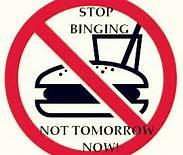
So lets start with some definitions
Binge: A period of unrestrained, immoderate self indulgence. A period of excessive or uncontrolled indulgence in food or drink
Binge eating: Uncontrolled ingestion of large quantities of food in a discrete interval, often with a lack of self control over the activity. A pattern of eating marked by episodes of rapid consumption of large amounts of food, usually food that is high is calories
Binge Eating Disorder (BED): Characterized by consuming large quantities of food in a very short period of time, until the individual is uncomfortably full. BED is much like bulimia except the individuals do not use any form of purging following a binge. Individuals usually feel out of control during a binge episode, followed by feelings of guilt and shame. Many individuals who suffer with BED use food as a way to cope with or block out feelings and emotions that they do not want to feel. Individuals can also use food as a way to numb themselves, to cope with daily life stresses, to provide comfort to themselves of fill a void they feel within. Like all EDs BED is a serious problem but can be overcome through proper treatment.
Signs and Symptoms:
- Weigh gain
- Feeling out of control over eating
- Low self esteem
- Depression
- Anxiety
- Fluctuations in weight
- Loss of sexual desire
- Hiding food
- Feelings of guilt and shame
- Disgusted with self
- Trying many different diets.
- Belief that life will get better if they lose weight
- Secretive eating patterns
- Avoidance of social situations where food is present
- Suicidal thoughts
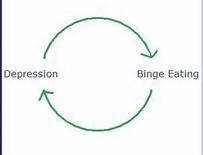
Causes of BED:
BED has many causes. It can have biological causes such as a malfunctioning hypothalmus that is not telling the brain when you are full. There is also a genetic mutation that causes food addiction, which plays a big role in binge eating. Serotonin is a chemical in the brain that can trigger binge eating. People who are suffering from depression, low self esteem, body dissatisfaction and loneliness are more susceptible to becoming compulsive eaters. My binging started when I was addicted to drugs. When I was using I just didn't eat. Son on days that I had no drugs my hunger would hit me like a tonne of bricks and I ate a lot. However I don't fit the criteria for BED because I purge after my binge
Here are something's that could help you and me overcome binging
1. - Eat!
I can't stress how important this is. It might sound strange to think that eating helps prevent binging but it really does. Here's why. Sometimes I end up binging because I am ravenous with hunger. If I haven't eaten all day there is a pretty good chance that I will binge. The longer I go without food the more likely I am to binge. I try to pre-empt a binge by eating little and often. If I have food in my system then I am a lot less likely to binge. Eating regularly keeps my blood sugar stable so it doesn't spike and then drop. It makes perfect sense really.
2. - Question your hunger
If I feel a binge coming on I try to stop and ask myself 'Am I really hungry?' Sometimes I can mistake thirst for hunger so I try drinking some water and see how I feel then
3. - Recognize why you want to binge
If the binge is still heading my way I try to recognize if I am actually hungry or emotionally hungry. Why am I about to binge? Am I bored? Sad? Angry? Anxious? Happy? For me binge eating is a coping mechanism that I use to manage painful emotions. By binge eating I am 'stuffing down' the pain or 'eating my feelings'. More often than not I choose to binge because it makes me feel better in the short term.
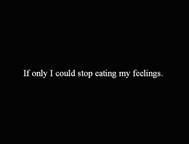
4. - Acknowledge the feeling
Acknowledge the feeling that you have identified and allow yourself to feel it. I like to think of emotions as waves. Like waves they come in thick and fast and can be overwhelming and intense. But if we can just wait and ride it out, the wave will eventually break and retreat back in to the sea. I binge eat to avoid pain that I feel I can't deal with. By identifying the underlying cause of the binge eating I can diffuse the trigger that sets off the episodes.
5. - Delay, Delay, Delay!
This can work really well and I also use this method if I get a craving for drugs. If that dreaded binge is being persistent, I try to give myself a cooling off period. When I feel the urge I try and wait 15mins and keep delaying until the urge passes ( and it will pass!)
6.- Distract!
This is essential and a very powerful tool in the fight against binge eating. For me boredom can be a massive trigger and I try to do something that distracts me both mentally and physically. If I feel a binge coming on if I can I get out of the house as just being in the kitchen at that time can be a trigger. I go for a drive. Walk my dogs. Call to a friend. Anything that will take my mind off food. Writing. Phoning someone. Cleaning. Clearing out my wardrobe. It's a great way to pass the time until the urge has passed. I find that when I'm watching tv I can be triggered when the adverts come on. It's like a cue to go in to the kitchen and make a snack. I still struggle with this massively.
7. - Don't keep binge food in the house
Ok I also struggle with this one. I really have to work on not keeping binge food around because if it's there I will eat it.
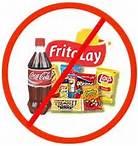
8. - Don not diet or cut out whole food groups
This will on only lead you to crave the foods that you have forbidden and may lead to a binge. I like to live by the rule Everything in moderation, including moderation
9. - Educate yourself
Try reading about the science behind why the body wants to binge and purge. At least then you will understand and be aware of why you do the things you do. Knowledge is power!
10. - Don't say 'Fuck it!'
You know when you are eating and you eat more than you want to? I end up saying Fuck it! and eat everything in sight. My thinking being 'Well I've eaten this much I may as well keep going and start fresh tomorrow. It's never too late to start over. Even if you have binged 100 times that day, you can still put the brakes on and take control. This is very difficult but it can be done.
11. - Develop positive coping tools
Write a list of the things that you can turn to when you feel the binge monster is knocking on your door. Exercise, yoga. dancing, meditation, mindfulness. Whatever it is that allows you to deal with your emotions in a positive and constructive way. I am yet to master this one.
12. - Join a support group
AA and NA work for millions of people around the world who are trying to stay clean and EDs including BED are a form of addiction so this is something really worth doing. I remember a therapist told me once that we get well quicker in a group setting than we do in one to one therapy. Because people share their own experiences and we are comforted by the fact that we are not alone. Also we can trade ideas, tips and coping strategies about what works for us. I used to attend support groups including a food group and I found them invaluable. There is something so magical about a group of people getting together to help and support each other get well. I haven't been to a group in over a year since I relapsed but I hope to go back someday.
13. - Seek out therapy
If you are not comfortable sharing in a group session then maybe therapy is for you. Find a therapist that specializes in EDs if you can. The therapist will keep track of your moods and maybe ask you to keep a food diary. They will help you both develop habits that are healthy and rid those that contribute to you problem.
14. - Medication
There are many types of meds that can help to stop BED. For instance some anti depressants have been shown to limit binge eating but the relapse rate is very high. Anti depressants are often used in correlation with therapy to help halt the behavior and reduce triggers. Many doctors will recommend a combination of both meds and therapy in order to promote healthy weight and life style choices. Personally I've never used meds to control binging and I do know of people who have and it did indeed help.
15 - Get out!
When all else fails, get out of the house, away from food and triggers and go for a brisk walk. Maybe listen to some uplifting music and literally walk away from the binge. Walking my dogs and listening to the radio is a great way to get out of my head and gives me a chance to snap out of a negative frame of mind
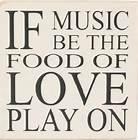
I hope this has been of some help to you if you are struggling with binge eating
I'll post Part 2 next week
Take care
Ruby x
